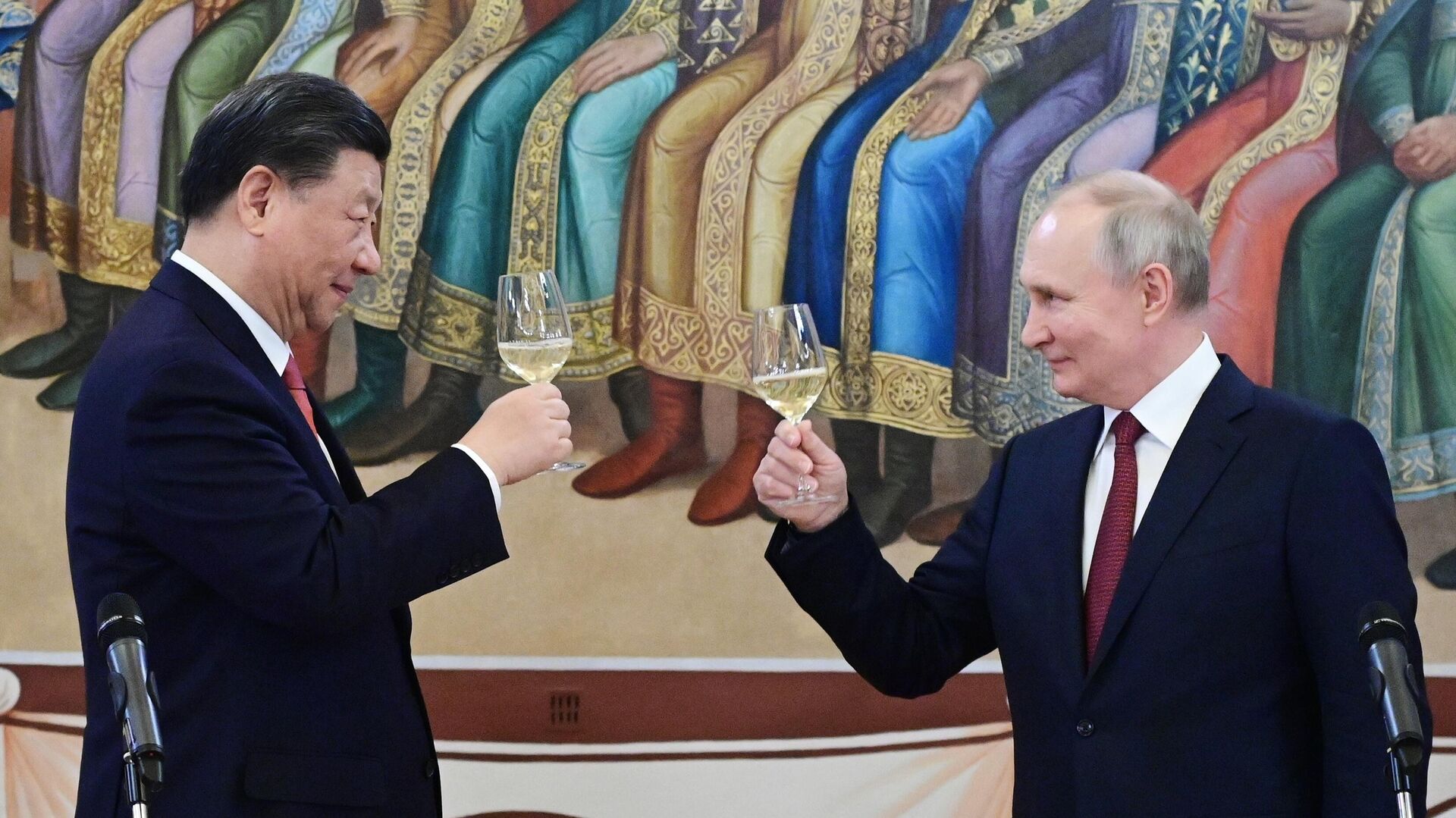
With civil unrest raging across Europe and banks collapsing in the US and Switzerland, the end of Western hegemony may be nigh. Journalist and author Jon Jeter and author, historian, and researcher Dr. Gerald Horne, Professor of History at the University of Houston, discuss the opportunities and risks of a new multipolar world.
Ever-closer relations between Russia and China herald a new “world order”, but also brings the risk that the US will chance a military confrontation between the nuclear powers.
The historic Moscow summit between Russian President Vladimir Putin and China’s Xi Jinping has only inflamed the rhetoric coming from Washington, London and Brussels.
Jon Jeter noted how former Australian prime minister Paul Keating had criticised the ‘AUKUS’ deal to by nuclear-powered attack submarines from the US and UK for a potential military confrontation with China.
He told Sputnik that other Australians were “hip to the game.”
“They understand that China’s not a military threat of any kind, but it is a financial threat to the United States’ hegemony in the world,” Jeter said.
“But the question still is just when will the United States wake up?” he asked. “As Malcolm [X, the murdered black power activist and anti-imperialist] said, ‘You can’t really change anything to the people wake up from their slumber and we’re still very much asleep at the wheel’.”
The author pointed to protests in France, now in their second week, against President Emmanuel Macron’s attempts to force through a rise in the retirement age without a parliamentary vote — lamenting that there was “nothing happening here in the US.”
“Hopefully this will be a wake up call combined with questions about the war in Ukraine, about Julian Assange and Australia and why he’s in prison, and this police violence,” Jeter said. “I hope this is the beginning of something.
He expressed hope that it would be “the beginning of something,” but conceded that “we tend in the United States to only listen to our own voices. We’re very ‘solipsistic’ country.”
Further afield, the Ukraine conflict and other events were “causing Africans to question their relationship with the United States, and also their relationship to Russia and specifically China and how they might use those relationship to leverage a brighter future,” Jeter said.
And he said there was a new political shift to the left across in Latin America, “in Argentina, Brazil with the re-election of Lula, certainly in Venezuela for more than 20 years. Now we’re seeing a very real shift to the left in Mexico with AMLO’s election.”
Dr. Gerald Horne told Sputnik that the Xi-Putin summit and China’s broad international framework for peace in Ukraine meant “we are on the cusp of a new world order,” which will “lead to an upset of many existing arrangements.”
“What worries me incessantly is that the North Atlantic powers, led by the United States, may decide on a riverboat gamble,” Horne cautioned.
“Rather than see China surge ahead in the passing lane accompanied by Russia and their allies, they would rather seek to wage war. I think that that is already happening with regard to the proxy conflict in Ukraine.”
The academic noted that commentators in the US have claimed that the Russian armed forces’ failure to defeat Ukraine in the first few weeks of the conflict was a “demerit on Moscow.”
“The other way to look at it is that Russia has been able to stand up to the United States and dozens of its allies with regard to this proxy war,” Horne said “
And that does not necessarily bode well for the North Atlantic countries, which may lead them to try to throw the dice with regard to waging war in China, perhaps with Taiwan as a trigger, just as they’re waging war in Ukraine.”
He said the people must warn “the hotheads in Washington” that was a “suicide pact.”
By James Tweedie
Published by Sputnik News
Republished by The 21st Century
The views expressed in this article are solely those of the author and do not necessarily reflect the opinions of 21cir.com.
